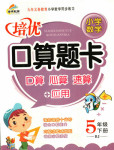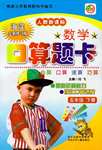题目内容
It’s hard being an astronaut’s son. I 1 ,everybody expects you to be special or 2 ,and I'm just an average student,and I’m average,too,when it 3 basketball,football,soccer,and baseball.
I often wonder 4 my father ever had a son like me. I mean he’s so 5 and so good at everything. So I used to dream about doing something spectacular to 6 my father and make him 7 me.
In one class,my teacher 8 a Father’s Day essay contest for us and the winners’ essays would be read in front of all the parents and students. After school I walked home,9 my father,who I would write about in my essay.
He sat with me in the 10 when I was a little kid and had a nightmare. He 11 me with a new puppy at my eighth birthday party. He sat and tried to 12 death to me when Grandpa Bob died. To me,he wasn’t a world-famous astronaut,just my dad.
I wrote about all these 13 in my essay.
One of our neighbours said, “I 14 you’ll win the contest,David. You’re the only one in town who could write about being the son of an astronaut. ” I 15 I hadn’t shown anyone the essay,but now I almost hoped I wouldn’t win. I didn’t want to win just 16 my father was an astronaut.
I won the second prize. When I finished reading my essay,the 17 applauded. I saw my father blowing his nose. I went back to my seat.
Dad nodded to me,18 his throat,and put his hand on my shoulder. “Son,this is the 19 moment of my life,” he said.
It was the proudest moment of my life,too. Maybe I’ll never be a great hero or win a Nobel Prize,but just then,it was 20 just to be my father’s son.
( ) 1. A. mean B. say
C. know D. believe
( ) 2. A. strange B. honest
C. perfect D. formal
( ) 3. A. refers to B. relates with
C. talks about D. comes to
( ) 4. A. why B. how
C. whether D. when
( ) 5. A. normal B. funny
C. special D. unique
( ) 6. A. shock B. influence
C. attract D. impress
( ) 7. A. proud of B. interested in
C. satisfied with D. ashamed of
( ) 8. A. reported B. announced
C. claimed D. warned
( ) 9. A. caring about B. worrying about
C. thinking about D. complaining about
( ) 10. A. silence B. threat
C. horror D. dark
( ) 11. A. pleased B. astonished
C. supported D. encouraged
( ) 12. A. describe B. explain
C. declare D. remark
( ) 13. A. experiments B. incidents
C. details D. memories
( ) 14. A. wish B. guess
C. bet D. promise
( ) 15. A. smiled B. nodded
C. doubted D. shrugged
( ) 16. A. because B. if
C. while D. as
( ) 17. A. parents B. audience
C. students D. teachers
( ) 18. A. cleaned B. blew
C. cleared D. opened
( ) 19. A. best B. proudest
C. finest D. greatest
( ) 20. A. natural B. honourable
C. important D. enough
[文章大意]虽然有一个当宇航员的父亲,但生活并不是容易的,人们都期盼你与众不同。在一次作文比赛中,作者没有写一个当宇航员的父亲,而是写了一个生活中的父亲,但父亲却为此感到自豪。
1. A用mean来解释前一句的意思。
2. C此处perfect意为"杰出的,完美的"。句意:每个人都认为你应该与众不同或者完美。
3. D此处when it comes to意为"说到,谈到",为固定搭配。需要注意的是,这里it为形式主语。
4. B句意:"我"有时候会想,父亲怎么会有"我"这样的儿子呢?
5. C句意:"我"是指父亲是如此特别,擅长任何事。
6. D此处impress意为"给人以深刻的印象"。
7. A句意:"我"过去常梦想着能够做出特别的事情来给父亲留下印象,并让他为"我"骄傲。
8. B此处announce意为"宣布"。老师向我们宣布了一件事,即让我们写关于父亲的作文。
9. C放学回家的时候,作者想着父亲的一切,决定该写些什么。
10. D此处dark对应nightmare。
11. A作者八岁生日时,父亲买回小狗,来使作者髙兴。
12. B作者的父亲向他解释死亡。
13. D此空上面的四句话都属于作者的回忆。
14. C此处bet意为"打睹"。邻居确信作者会得奖,因为他是唯一一个可以写自己有一个宇航员父亲的人。
15. D此处shrug意为"耸肩",表示不置可否或不同意。
16. A作者不想因为自己父亲是宇航员才获奖。
17. B当"我"读完文章时,下面的观众都为"我"鼓掌。
18. C父亲清了一下喉咙。这里说明父亲借此来掩饰自己的激动。
19. B这是作者的父亲一生中最自豪的时刻。文章中最后一段的首句也有暗示。
20. D也许将来永远不能成为英雄或获得诺贝尔奖,但能作为父亲的儿子就足够了。

 培优口算题卡系列答案
培优口算题卡系列答案 开心口算题卡系列答案
开心口算题卡系列答案 口算题卡河北少年儿童出版社系列答案
口算题卡河北少年儿童出版社系列答案 A加金题 系列答案
A加金题 系列答案